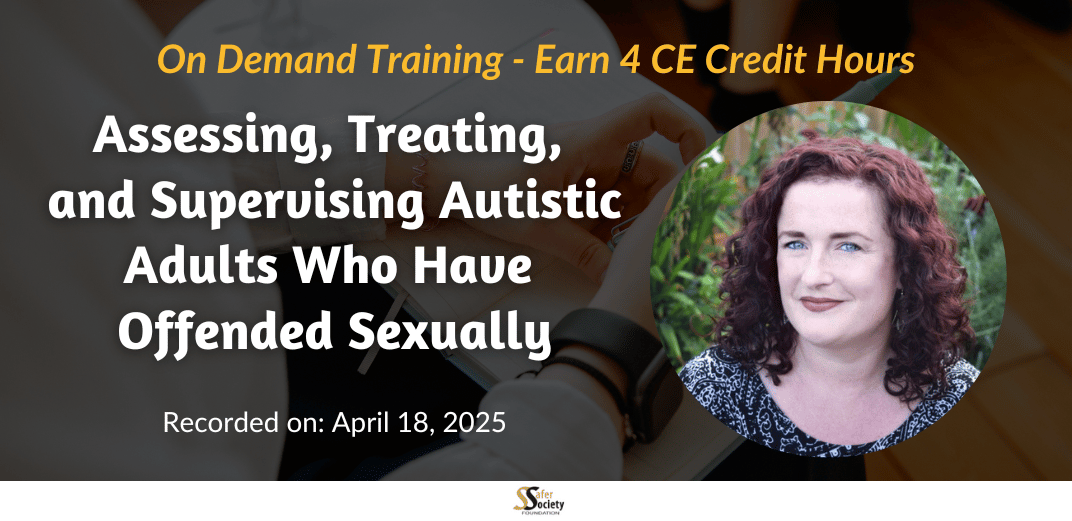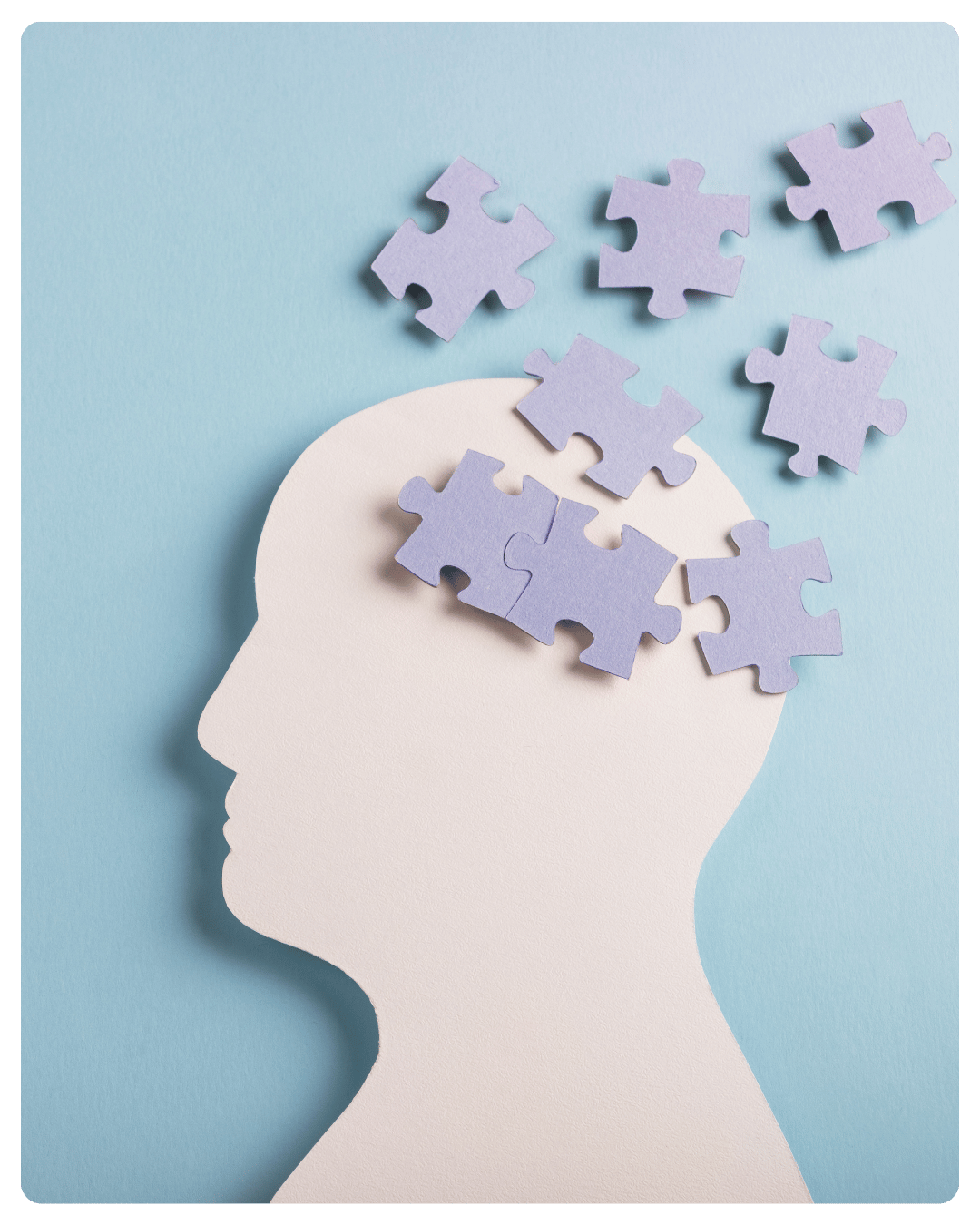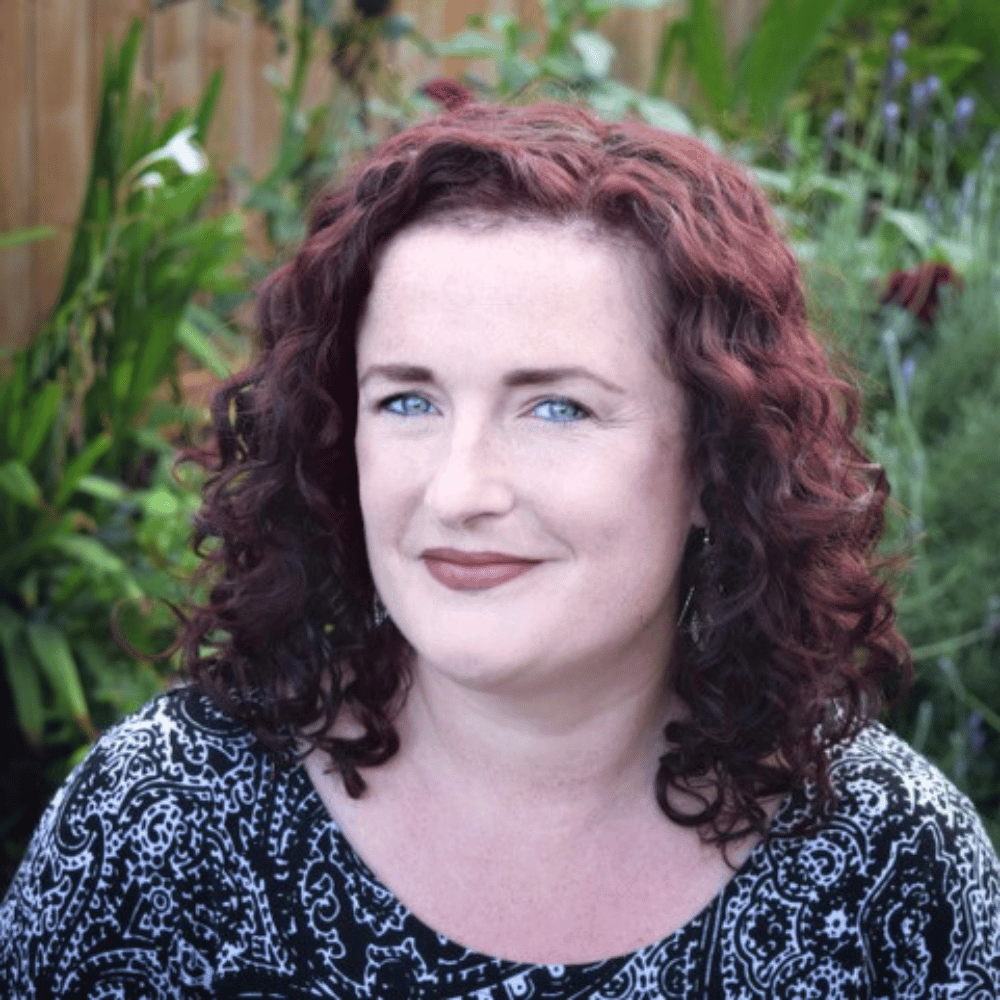
Assessing, Treating, and Supervising Autistic Adults Who Have Offended Sexually
Already purchased an On Demand training?
Click here to access your Safer Society On-Demand Training Center account.
 With the increasing occurrence of adult autism diagnoses, there is a growing need for evaluators, treatment providers, and parole and probation officers with the skills to work with this population. Presenter Tiffany Looney MS, LPC, CCSOT developed this training to address the gaps in our understanding of autism spectrum disorder and their implications for clinical and supervisory practices.
With the increasing occurrence of adult autism diagnoses, there is a growing need for evaluators, treatment providers, and parole and probation officers with the skills to work with this population. Presenter Tiffany Looney MS, LPC, CCSOT developed this training to address the gaps in our understanding of autism spectrum disorder and their implications for clinical and supervisory practices.
In this training, participants develop an understanding of the neurobiological differences of the autistic brain, the social model of disability, and what it means to be neurodiversity-affirming. Ms. Looney discusses reasons why autistic persons sexually offend, how their reasons may differ from those of their non-autistic peers, and how this impacts our understanding of risk, treatment needs, and effective supervision of these clients. She further describes key areas of autistic functioning, differentiating between autistic meltdown, shutdown, and burnout, as well as other effects of autism on mental and physical health, executive and adaptive functioning, and sensory processing.
Equipped with these insights and strategies, participants can foster more effective, equitable, and neurodiversity affirming interactions with the autistic individuals they work with in their respective fields.
1) Explain the differences between the medical and neurodiversity-affirming models of autism
2) Define the social model of disability
3) Recognize and describe the unique characteristics of autistic individuals, including:
- cognitive processing patterns
- sensory processing variations
- autonomic nervous system functionin
- social interaction styles
4) Apply this advanced understanding to clinical practices with autistic individuals who have engaged in harmful or inappropriate sexual behavior
Audience
This training is primarily for professionals who work directly with autistic adults who have sexually abused others. This includes mental health counselors, social workers, clinical psychologists, and forensic experts.
Content Level
Disclosure
Continuing Education Approval
American Psychological Association (APA)
Safer Society Foundation, Inc. is approved by the American Psychological Association (APA) to sponsor continuing education for psychologists. Safer Society Foundation, Inc. maintains responsibility for this program and its content.
Who's Presenting

Tiffany Looney MS, LPC, CCSOT
Tiffany Looney MS, LPC, CCSOT, is a private practitioner based in Newberg, Oregon. She specializes in forensic evaluation services with a focus on autism-affected individuals. Ms. Looney conducts sexual offense-specific risk assessments for the Oregon Board of Parole as well as autism diagnostic evaluations. She also provides individual and group therapy with a focus on recently diagnosed autistic adults. She has presented on this and related topics since 2008.
